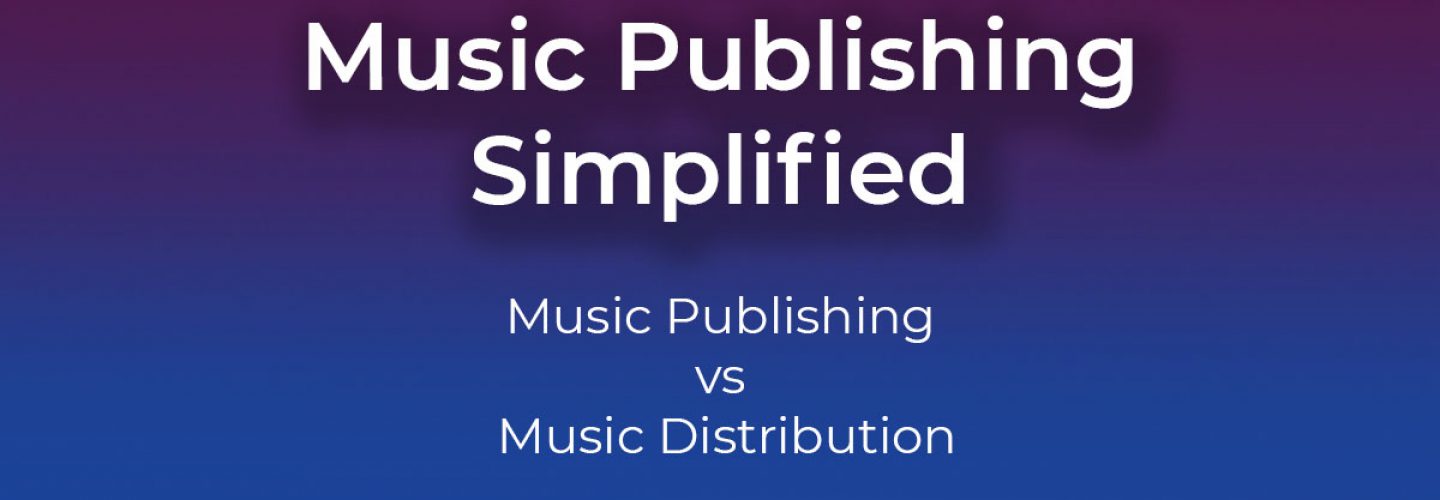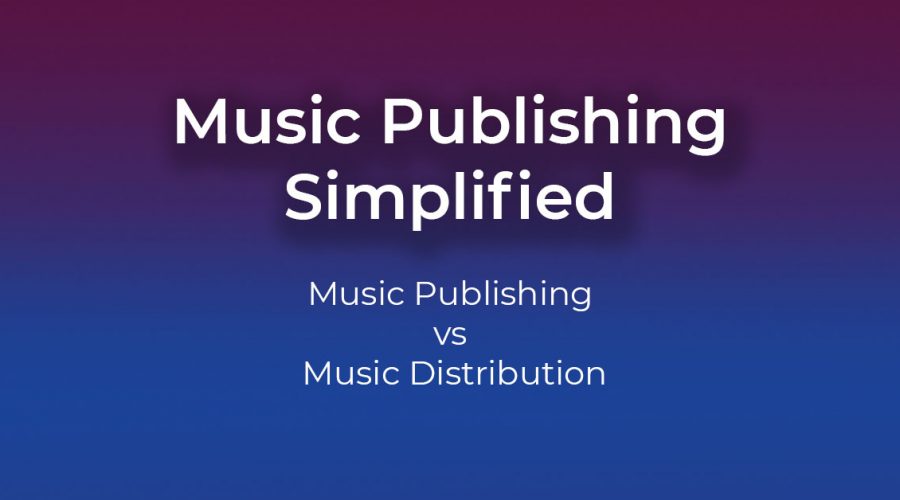Earlier this year, Anara Publishing joined forces with the Indian office of their sister company Horus Music to present a series of Instagram Live events entitled “Music Publishing Simplified.” We know that for independent artists, especially in India, the world of music publishing isn’t easily accessible so that’s why we decided to put together this series of sessions to break down things in easy to digest chunks. If you missed the live sessions, we’re recapping each of them in a dedicated blog.
This first one is focused on Music Distribution v Music Publishing, and in future sessions we will look at performance rights organisations, music copyright and sync licensing.
The Music Publishing Simplified sessions were hosted by Deepa Seshadri and Deborah Smith. Deepa currently works for Horus Music India on business development. Horus Music offers bespoke digital distribution services which allow musicians and labels to sell and release their content and was established in the U.K in 2006. Since 2016, Horus Music has had a presence in India. Debs is the director of Anara Publishing in the U.K. Debs started working at Horus Music in 2012, and then launched Anara Publishing with CEO Nick Dunn in 2017. Anara offers a whole suite of music publishing services to their roster, including admin, sync licensing, A&R and writing camps.
Catch up on Music Distribution v Music Publishing on Horus Music India’s IGTV and scroll down for an overview of the session.
What is the difference between music distribution and music publishing?
Before we dissect music distribution vs music publishing, it is important to do a quick breakdown of music copyright.
In a nutshell, the different types of copyright within a song comprise of the master recording and the composition. The master recording is owned by whoever finances the recording session, this is typically the record label or the recording artist. The composition is owned by the songwriter (or multiple songwriters that contribute), and by composition we mean the following: lyrics, melody, and music.
A music distributor will primarily deal with the master recording (recorded royalties), ensuring that they get the song out to fans via delivering it to DSPs (digital service providers). Examples of DSPs include Spotify, Apple Music, Deezer, and Pandora, to name a few. A music distributor may also offer extra marketing tools and promotion for the artist, like playlisting campaigns.
Music publishing is not the same as music distribution. The publisher deals with the composition copyright, and they essentially make sure that you collect your owed royalties from the use of this song. To add to this, publishers can also look to work with you further on developmental creative opportunities, for example pitching the song for sync opportunities and setting up songwriting and collaboration camps. You do not have to be a recording artist to work with a music publisher, you can be solely a songwriter.
Are publishing royalties generated from streams and downloads too? What do mechanical royalties mean?
Yes, the distributor collects the revenue generated from the master recording and the publisher collects the revenue generated from the compositional copyright. In theory, if your composition gets covered and released by a different artist, you’ll still get mechanical royalties as you’re the one who wrote the composition (just remember that you need to register that song to a PRO). The publisher collects revenue when the song is performed in public, examples of this include performing live and broadcasting the song on radio or TV.
To add to this, the publisher also collects mechanical royalties. This is not to be confused with master rights! The term mechanical derives from when a composition is reproduced physically, and royalties are generated every time your composition gets reproduced e.g. vinyl, CD and now this includes downloads and streams too. As streams and downloads reproduce both the master recording and the composition, both your distributor and publisher can collect royalties at the same time simultaneously.
In short, publishing deals with performance and mechanical rights, and distribution deals with master rights.
How are these royalties collected and paid?
There are Performance Rights Organisations (PRO’s) in every territory who find out from the DSPs what has been played, figure out how who the owed parties are and pay them. In general, a publisher can help to navigate this field better as a publisher has a greater ability to collect from PROs around the world.
How do the DSP’s know who the songwriters are?
Distributors should give the opportunity to provide songwriter information when you upload your release. In addition, you should also provide ISRC’s to your PRO when registering works (or when your publisher registers them) for better matching. An example of a PRO in the U.K. is PRS. By registering your works, this helps all the services to link up better, especially if the metadata is correct and consistent. This means that the correct usage can be reported, and royalties can be paid promptly.
Are things the same in India as everywhere else in the world?
For publishing, things are the same in India as everywhere else in the world as many PROs have reciprocal deals with each other. However, there may be some nuances in how royalties are collected in India which you’d need to speak to IPRS directly about.
Music distribution is very accessible from anywhere in the world. If you have any further questions on this, feel free to speak to the team at Horus Music India so they can help you.
How do I find a publisher?
There are many different publishers available, the biggest piece of advice is to do your research online. A writer should be thinking about the type of music that they write and if that would fit in with the publishers’ roster. In terms of deal, it is good advice to know what YOU are looking for, different types of publishers offer different types of deals, for example, admin only, full publishing, sync agent only. Lastly, take note of their submission guidelines, first impressions count!
Is Anara Publishing looking for artists from India? How can they get in touch with you?
Yes, we are always looking for new artists to add to our roster. Anara Publishing accepts submissions via the website and you can read our submission guidelines before getting in touch. Please make sure to send streaming links only.

